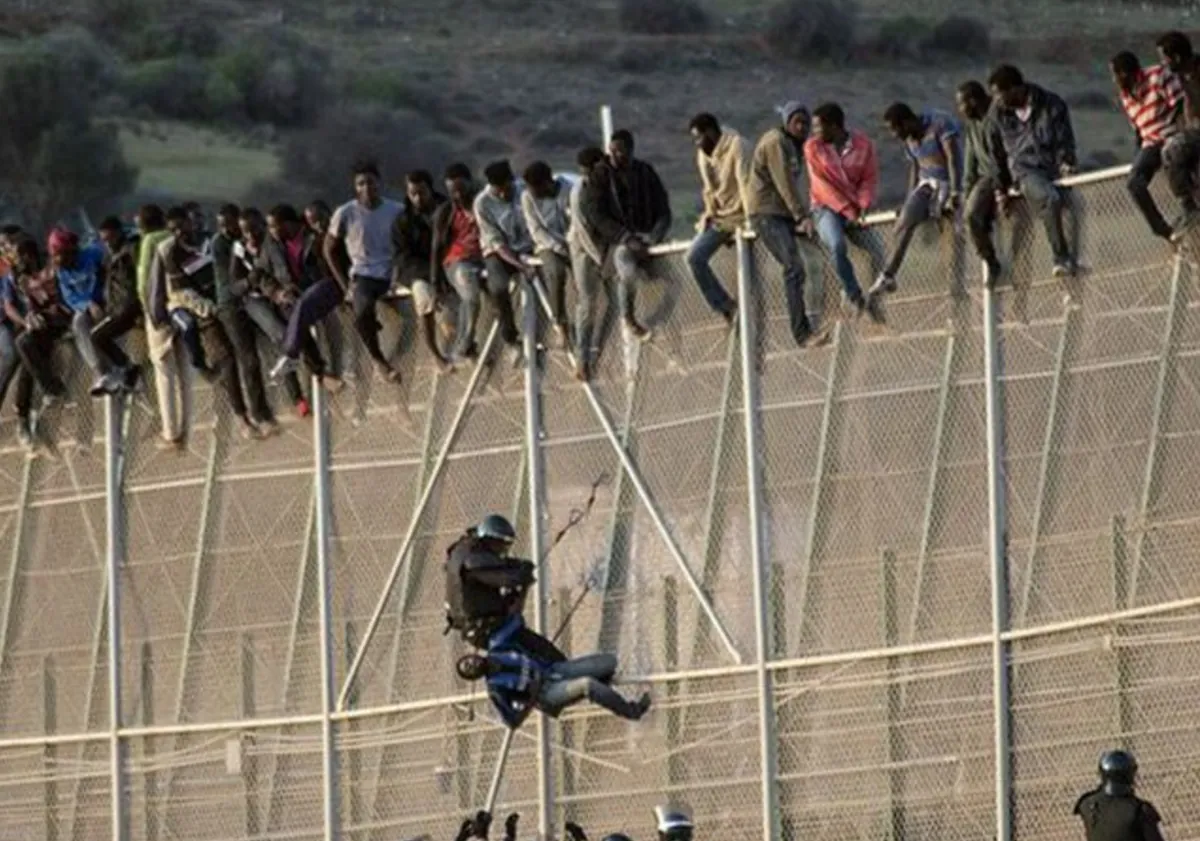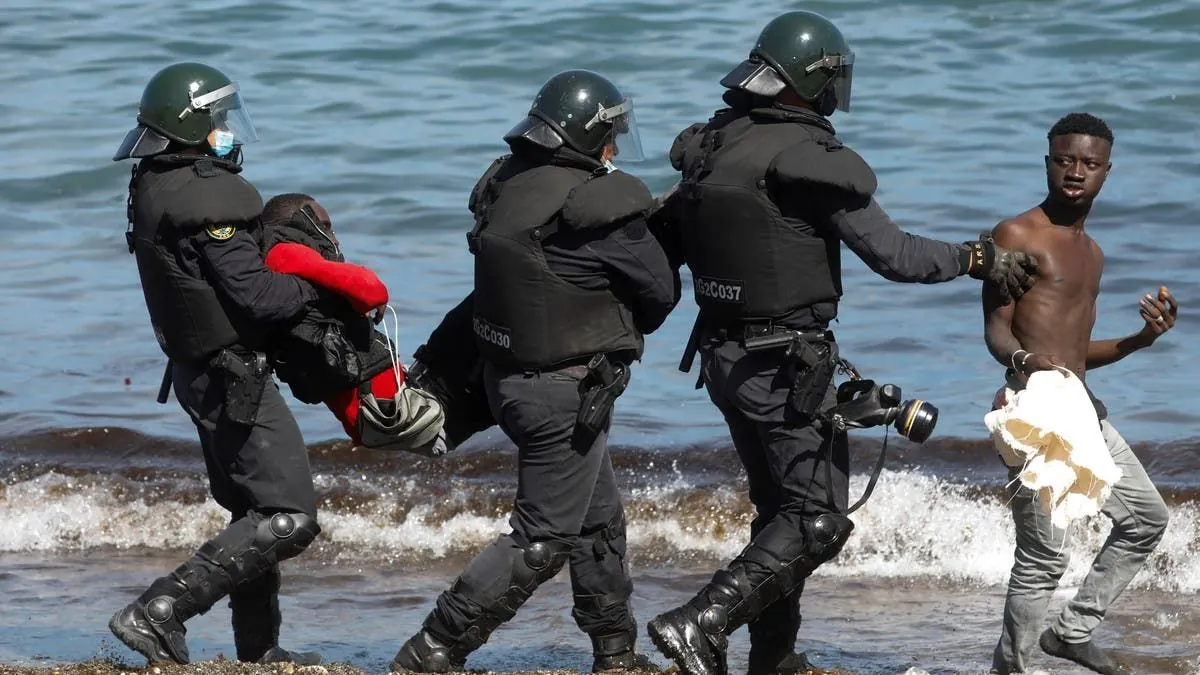Morocco Arrests 152 for Inciting Mass Migration Attempt to Spanish Ceuta
Morocco detains 152 individuals for promoting illegal migration to Ceuta via social media. Recent attempt by 3,000 people thwarted by heightened security measures in border city of Fnideq.

Moroccan authorities have apprehended 152 individuals for allegedly using social media platforms to encourage a large-scale unauthorized migration attempt into Ceuta, the Spanish enclave on Morocco's Mediterranean coast. This information was disclosed by a government spokesperson during a press conference on September 19, 2024.
In recent days, a significant number of predominantly young Moroccan men congregated in Fnideq, a northern city adjacent to Ceuta, with the intention of crossing the border. Their efforts were impeded by an unprecedented security presence in the area, as reported by local human rights activists.
Government spokesperson Mustapha Baitas stated, "All attempts have been foiled." He further elaborated that approximately 3,000 individuals had attempted to migrate illegally, marking the first official comment on the incident days after it occurred.
Ceuta, along with Melilla, represents one of the European Union's two land borders with Africa. These Spanish autonomous cities, under Spanish control since 1580, periodically face waves of attempted crossings by individuals seeking to enter Europe. Ceuta, with an area of 18.5 square kilometers and a population of about 85,000, is surrounded by a border fence specifically designed to deter unauthorized entry.

The collaboration between Morocco and Spain in addressing illegal migration has intensified since Madrid endorsed a Moroccan autonomy plan for the disputed Western Sahara in 2022. This ongoing conflict, which began in 1975, has significantly influenced regional politics and migration patterns.
Local media shared footage depicting young people throwing stones at security forces as they were prevented from approaching the Ceuta border. Despite these clashes, Baitas assured that no fatalities were reported and that authorities acted within the bounds of the law.
Official statistics reveal that in the first eight months of 2024, Morocco prevented 45,015 individuals from illegally migrating to Europe. This figure underscores the scale of the ongoing migration challenge in the region.
The increased surveillance along Morocco's northern borders has led to a shift in migration routes. An increasing number of migrants are now attempting the more perilous and extended Atlantic journey to the Canary Islands, an autonomous community of Spain located approximately 100 kilometers from the Moroccan coast at its closest point. This route is considered one of the deadliest migration paths globally.
In August 2024, hundreds of migrants took advantage of dense fog to swim to Ceuta, as reported by Spanish police. This incident highlights the persistent nature of migration attempts and the diverse tactics employed by those seeking to reach European soil.
As the situation continues to evolve, the international community watches closely, recognizing the complex interplay of human rights, border security, and regional politics in this sensitive area where Europe and Africa meet.
"All attempts have been foiled. Some 3000 people attempted illegal migration."


































